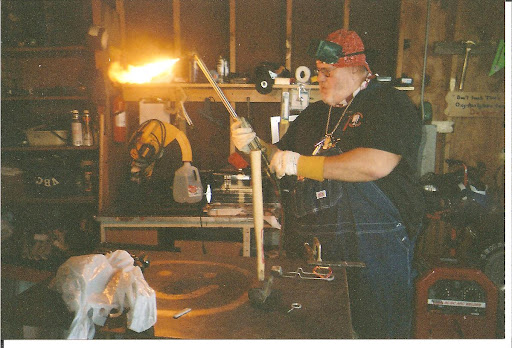tschuckman@aol.com
I am all for getting back to "Low Tech" methods of cleaning, medicating and preserving ! With all the nasty 'side effects' of many modern medicines, I ALWAYS do research on various 'medicines' that some doctors [VA included] try on their patients. And I didn't know that ammonia hurts the finish of optical lens, glasses, etc. Sorry, folks, I don't intend to be used as a experimental lab rat !!
Vinegar: A Prepper’s Multitasking Liquid Must-Have
Most of the preppers that I know, myself included, like to revert to using products or items that have aproven track record. One such product that is a staple item on many preppers must-have list is vinegar.
 is made through the fermentation of ethanol of starchy or sugary items like corn and apples. There are many varieties of vinegar such as white, malt, pickling, balsamic, wine or apple cider. However, what makes vinegar a mighty multitasking liquid is the fact it has hundreds of uses in and around the home and because of the endless possible uses for vinegar it stays at the top of my “must-have” list. Here are a few alternative uses for vinegar.
is made through the fermentation of ethanol of starchy or sugary items like corn and apples. There are many varieties of vinegar such as white, malt, pickling, balsamic, wine or apple cider. However, what makes vinegar a mighty multitasking liquid is the fact it has hundreds of uses in and around the home and because of the endless possible uses for vinegar it stays at the top of my “must-have” list. Here are a few alternative uses for vinegar.
Food or Food Preparation
- Substitute for buttermilk (add 1 tablespoon of white vinegar per cup of milk to make buttermilk)
- Meat Tenderizer- adding tablespoon vinegar to liquid such as water will help tenderize during the cooking process. Marinating meat in flavored vinegar for an hour before cooking will not only flavor the meat but will also tenderize it.
- Make your own ricotta cheese, all you need is a little whole milk, cream, salt and vinegar and you have the makings for fresh ricotta cheese.
- Preserving or pickling food- the acidic level in vinegar makes it ideal for pickling.
- using oil and vinegar, try experimenting with flavored vinegars for a fresh twist.
Cleaning Uses with White Vinegar
- Drain cleaner
- Window cleaner
- Grease Remover
- Air Freshener
- Tarnish remover
- Suds Control
- All purpose cleaner
- Remove water stains from leather
- Remove paint stains in clothing
Around the House Uses for White Vinegar
- Pest control
- Rust remover
- Can help unclog toilets
- Keep pests off of some house plants
- Non-toxic weed killer
Personal Care Uses for White Vinegar
- Rub on skin for a safe insect repellent or mix one tablespoon of vinegar per cup of water and put into a spray bottle for easy application.
- Alleviate pain and discomfort of insect or bee sting
- Soak gauze in vinegar; apply to sprains to relieve pain and minimize swelling
- Soft dry skin
- Control dandruff
- Sunburn—carefully apply vinegar with a cotton ball to sunburn area. Although this process will sting and burn at first, the vinegar helps balance the skin’s PH level to help speed healing.
Don’t Forget the Pets
- to water to help control fleas
- bowl cleaner
- Helps remove skunk odor from pets
- Helps remove pet urine stains
Do you have an alternative use for vinegar? Share it with us in the comment section.
Lisa Metheny is a published award-winning outdoor writer, photographer, speaker and outdoor skills instructor. Lisa holds several instructor certifications and conducts a number of women-focused outdoor seminars on topics such as archery and hunting throughout the year. She regularly teaches hunters education and archery classes and has become an advocate for promoting traditional outdoor recreation to families across the United States. Lisa is also an avid and accomplished hunter with many big game species to her credit. She is a member of POMA and former Board of Directors member as well as a member of the , RMEF, MDF and DU.
Trackback from your site.
The mission of Cheaper Than Dirt!'s blog, "'s Log," is to provide information-not opinions-to our customers and the shooting community. We want you, our readers, to be able to make informed decisions. The information provided here does not represent the views of Cheaper Than Dirt!









Comments (18)
Doug
NorthWoodsChuck
fred hochrein
Fenwick Babbit
Jay A.
primo
stan
Troy
Never use ammonia “windex” to clean optics! Ammonia will remove coatings on eye glasses, scopes, binoculars etc…
Vinegar and newspaper does a good streak free job on glass, scrape off the bugs first. I use a mix of 1/3 91% isopropyl alcohol with 2/3 distilled water in a plant spray bottle for cleaning all my glass, maybe a little more than 1/3 of 91%, not a precision mix, don’t use 70%, little to oily.